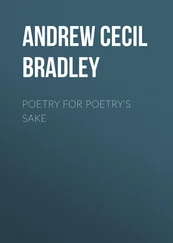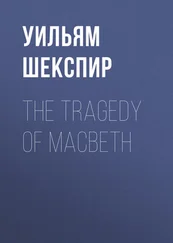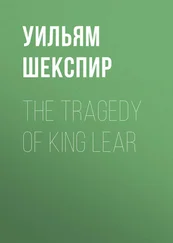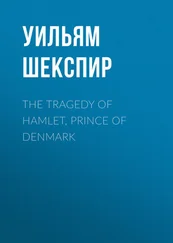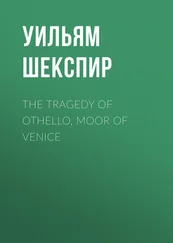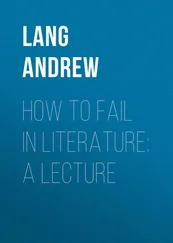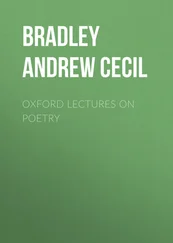Andrew Cecil Bradley - Shakespearean Tragedy - Lectures on Hamlet, Othello, King Lear, Macbeth
Здесь есть возможность читать онлайн «Andrew Cecil Bradley - Shakespearean Tragedy - Lectures on Hamlet, Othello, King Lear, Macbeth» — ознакомительный отрывок электронной книги совершенно бесплатно, а после прочтения отрывка купить полную версию. В некоторых случаях можно слушать аудио, скачать через торрент в формате fb2 и присутствует краткое содержание. Жанр: Биографии и Мемуары, foreign_antique, на английском языке. Описание произведения, (предисловие) а так же отзывы посетителей доступны на портале библиотеки ЛибКат.
- Название:Shakespearean Tragedy: Lectures on Hamlet, Othello, King Lear, Macbeth
- Автор:
- Жанр:
- Год:неизвестен
- ISBN:нет данных
- Рейтинг книги:5 / 5. Голосов: 1
-
Избранное:Добавить в избранное
- Отзывы:
-
Ваша оценка:
- 100
- 1
- 2
- 3
- 4
- 5
Shakespearean Tragedy: Lectures on Hamlet, Othello, King Lear, Macbeth: краткое содержание, описание и аннотация
Предлагаем к чтению аннотацию, описание, краткое содержание или предисловие (зависит от того, что написал сам автор книги «Shakespearean Tragedy: Lectures on Hamlet, Othello, King Lear, Macbeth»). Если вы не нашли необходимую информацию о книге — напишите в комментариях, мы постараемся отыскать её.
Shakespearean Tragedy: Lectures on Hamlet, Othello, King Lear, Macbeth — читать онлайн ознакомительный отрывок
Ниже представлен текст книги, разбитый по страницам. Система сохранения места последней прочитанной страницы, позволяет с удобством читать онлайн бесплатно книгу «Shakespearean Tragedy: Lectures on Hamlet, Othello, King Lear, Macbeth», без необходимости каждый раз заново искать на чём Вы остановились. Поставьте закладку, и сможете в любой момент перейти на страницу, на которой закончили чтение.
Интервал:
Закладка:
These are aspects of the tragic world at least as clearly marked as those which, taken alone, suggest the idea of fate. And the idea which they in their turn, when taken alone, may suggest, is that of an order which does not indeed award 'poetic justice,' but which reacts through the necessity of its own 'moral' nature both against attacks made upon it and against failure to conform to it. Tragedy, on this view, is the exhibition of that convulsive reaction; and the fact that the spectacle does not leave us rebellious or desperate is due to a more or less distinct perception that the tragic suffering and death arise from collision, not with a fate or blank power, but with a moral power, a power akin to all that we admire and revere in the characters themselves. This perception produces something like a feeling of acquiescence in the catastrophe, though it neither leads us to pass judgment on the characters nor diminishes the pity, the fear, and the sense of waste, which their struggle, suffering and fall evoke. And, finally, this view seems quite able to do justice to those aspects of the tragic fact which give rise to the idea of fate. They would appear as various expressions of the fact that the moral order acts not capriciously or like a human being, but from the necessity of its nature, or, if we prefer the phrase, by general laws,—a necessity or law which of course knows no exception and is as 'ruthless' as fate.
It is impossible to deny to this view a large measure of truth. And yet without some amendment it can hardly satisfy. For it does not include the whole of the facts, and therefore does not wholly correspond with the impressions they produce. Let it be granted that the system or order which shows itself omnipotent against individuals is, in the sense explained, moral. Still—at any rate for the eye of sight—the evil against which it asserts itself, and the persons whom this evil inhabits, are not really something outside the order, so that they can attack it or fail to conform to it; they are within it and a part of it. It itself produces them,—produces Iago as well as Desdemona, Iago's cruelty as well as Iago's courage. It is not poisoned, it poisons itself. Doubtless it shows by its violent reaction that the poison is poison, and that its health lies in good. But one significant fact cannot remove another, and the spectacle we witness scarcely warrants the assertion that the order is responsible for the good in Desdemona, but Iago for the evil in Iago. If we make this assertion we make it on grounds other than the facts as presented in Shakespeare's tragedies.
Nor does the idea of a moral order asserting itself against attack or want of conformity answer in full to our feelings regarding the tragic character. We do not think of Hamlet merely as failing to meet its demand, of Antony as merely sinning against it, or even of Macbeth as simply attacking it. What we feel corresponds quite as much to the idea that they are its parts, expressions, products; that in their defect or evil it is untrue to its soul of goodness, and falls into conflict and collision with itself; that, in making them suffer and waste themselves, it suffers and wastes itself; and that when, to save its life and regain peace from this intestinal struggle, it casts them out, it has lost a part of its own substance,—a part more dangerous and unquiet, but far more valuable and nearer to its heart, than that which remains,—a Fortinbras, a Malcolm, an Octavius. There is no tragedy in its expulsion of evil: the tragedy is that this involves the waste of good.
Thus we are left at last with an idea showing two sides or aspects which we can neither separate nor reconcile. The whole or order against which the individual part shows itself powerless seems to be animated by a passion for perfection: we cannot otherwise explain its behaviour towards evil. Yet it appears to engender this evil within itself, and in its effort to overcome and expel it it is agonised with pain, and driven to mutilate its own substance and to lose not only evil but priceless good. That this idea, though very different from the idea of a blank fate, is no solution of the riddle of life is obvious; but why should we expect it to be such a solution? Shakespeare was not attempting to justify the ways of God to men, or to show the universe as a Divine Comedy. He was writing tragedy, and tragedy would not be tragedy if it were not a painful mystery. Nor can he be said even to point distinctly, like some writers of tragedy, in any direction where a solution might lie. We find a few references to gods or God, to the influence of the stars, to another life: some of them certainly, all of them perhaps, merely dramatic—appropriate to the person from whose lips they fall. A ghost comes from Purgatory to impart a secret out of the reach of its hearer—who presently meditates on the question whether the sleep of death is dreamless. Accidents once or twice remind us strangely of the words, 'There's a divinity that shapes our ends.' More important are other impressions. Sometimes from the very furnace of affliction a conviction seems borne to us that somehow, if we could see it, this agony counts as nothing against the heroism and love which appear in it and thrill our hearts. Sometimes we are driven to cry out that these mighty or heavenly spirits who perish are too great for the little space in which they move, and that they vanish not into nothingness but into freedom. Sometimes from these sources and from others comes a presentiment, formless but haunting and even profound, that all the fury of conflict, with its waste and woe, is less than half the truth, even an illusion, 'such stuff as dreams are made on.' But these faint and scattered intimations that the tragic world, being but a fragment of a whole beyond our vision, must needs be a contradiction and no ultimate truth, avail nothing to interpret the mystery. We remain confronted with the inexplicable fact, or the no less inexplicable appearance, of a world travailing for perfection, but bringing to birth, together with glorious good, an evil which it is able to overcome only by self-torture and self-waste. And this fact or appearance is tragedy. 15
LECTURE II
CONSTRUCTION IN SHAKESPEARE'S TRAGEDIES
Having discussed the substance of a Shakespearean tragedy, we should naturally go on to examine the form. And under this head many things might be included; for example, Shakespeare's methods of characterisation, his language, his versification, the construction of his plots. I intend, however, to speak only of the last of these subjects, which has been somewhat neglected; 16and, as construction is a more or less technical matter, I shall add some general remarks on Shakespeare as an artist.
1
As a Shakespearean tragedy represents a conflict which terminates in a catastrophe, any such tragedy may roughly be divided into three parts. The first of these sets forth or expounds the situation, 17or state of affairs, out of which the conflict arises; and it may, therefore, be called the Exposition. The second deals with the definite beginning, the growth and the vicissitudes of the conflict. It forms accordingly the bulk of the play, comprising the Second, Third and Fourth Acts, and usually a part of the First and a part of the Fifth. The final section of the tragedy shows the issue of the conflict in a catastrophe. 18
The application of this scheme of division is naturally more or less arbitrary. The first part glides into the second, and the second into the third, and there may often be difficulty in drawing the lines between them. But it is still harder to divide spring from summer, and summer from autumn; and yet spring is spring, and summer summer.
The main business of the Exposition, which we will consider first, is to introduce us into a little world of persons; to show us their positions in life, their circumstances, their relations to one another, and perhaps something of their characters; and to leave us keenly interested in the question what will come out of this condition of things. We are left thus expectant, not merely because some of the persons interest us at once, but also because their situation in regard to one another points to difficulties in the future. This situation is not one of conflict, 19but it threatens conflict. For example, we see first the hatred of the Montagues and Capulets; and then we see Romeo ready to fall violently in love; and then we hear talk of a marriage between Juliet and Paris; but the exposition is not complete, and the conflict has not definitely begun to arise, till, in the last scene of the First Act, Romeo the Montague sees Juliet the Capulet and becomes her slave.
Читать дальшеИнтервал:
Закладка:
Похожие книги на «Shakespearean Tragedy: Lectures on Hamlet, Othello, King Lear, Macbeth»
Представляем Вашему вниманию похожие книги на «Shakespearean Tragedy: Lectures on Hamlet, Othello, King Lear, Macbeth» списком для выбора. Мы отобрали схожую по названию и смыслу литературу в надежде предоставить читателям больше вариантов отыскать новые, интересные, ещё непрочитанные произведения.
Обсуждение, отзывы о книге «Shakespearean Tragedy: Lectures on Hamlet, Othello, King Lear, Macbeth» и просто собственные мнения читателей. Оставьте ваши комментарии, напишите, что Вы думаете о произведении, его смысле или главных героях. Укажите что конкретно понравилось, а что нет, и почему Вы так считаете.





